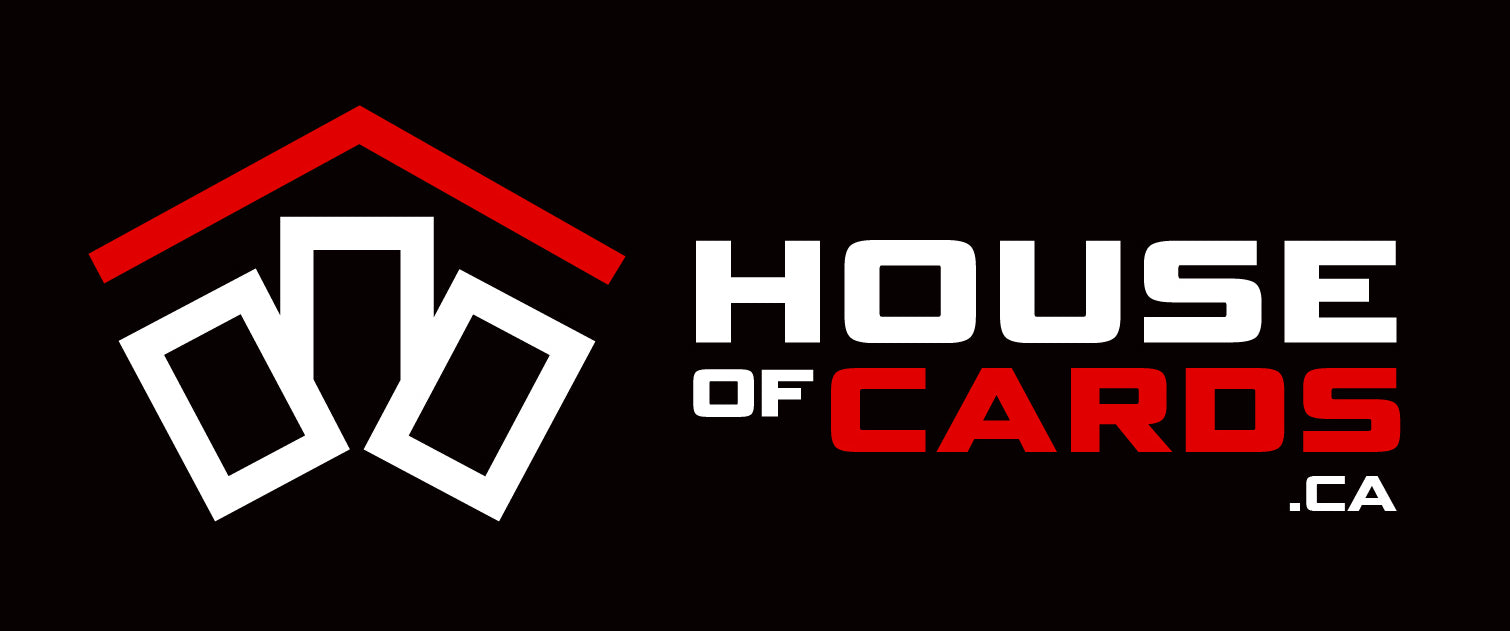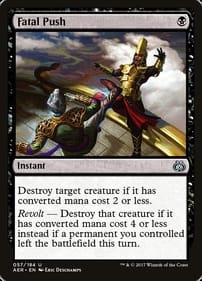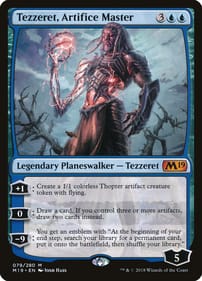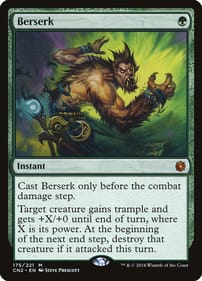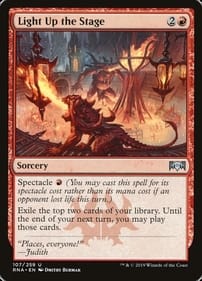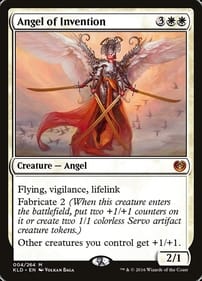Competitive Elder Dragon Highlander (cEDH) is a format that rewards deep strategic planning and advanced play techniques. Beyond the basics of deck building and understanding the meta, mastering cEDH requires familiarity with a set of sophisticated strategies and techniques.
These approaches can help you gain an edge over your opponents, navigate complex board states, and secure victories from seemingly unwinnable positions.
Here’s an overview of some advanced strategies and techniques integral to cEDH:
1. Stack Interaction and Manipulation
- Priority and the Stack: Mastering how to effectively use the stack is crucial. This involves timing your spells and abilities for maximum effect, understanding when to hold back resources, and knowing how to respond to opponents’ actions.
- Split-Second and Stack Disruption: Utilizing split-second spells like Krosan Grip or strategically deploying counter-magic to disrupt opponents' win conditions requires precise timing and an understanding of your opponents' strategies.
2. Threat Assessment and Resource Allocation
- Identifying Key Threats: Quickly identifying which threats must be immediately addressed and which can be ignored or dealt with later is vital. This involves understanding the current meta, recognizing common combo pieces, and evaluating the potential impact of each card on the board.
- Efficient Use of Resources: Balancing the use of your resources, including mana, cards in hand, and life points, to efficiently deal with threats while advancing your own game plan.
3. Strategic Mulligans
- Understanding the importance of a strong start in cEDH cannot be overstated. Learning to evaluate opening hands based on your deck’s strategy, potential for early acceleration, interaction capabilities, and resilience to disruption is essential for consistent performance.
4. Metagaming
- Deck and Player Adaptation: Adapting your deck and playstyle to counter the prevalent decks and strategies in your specific playgroup or the broader cEDH meta. This may involve tweaking your deck’s composition or altering your approach to games based on anticipated matchups.
- Predicting Opponents' Moves: Developing an ability to predict your opponents' likely actions based on the current game state, known strategies, and available resources. This foresight can inform your decisions, allowing you to prepare defenses or to strike when opponents are vulnerable.

5. Political Play and Negotiation
- While less emphasized in cEDH than in casual EDH, politics and negotiation still play a role. Forming temporary alliances, managing threat perception, and negotiating can be crucial, especially in multiplayer settings where strategic targeting can influence the game's outcome.
6. Combo Execution and Interruption
- Sequencing Combos: Understanding the optimal sequence for executing your combo, including how to navigate potential points of interaction from opponents.
- Disrupting Combos: Recognizing the critical junctures in opponents’ combo execution where your interaction will have the most impact, and planning your plays to disrupt these moments effectively.
7. Adapting to Rule 0 Discussions
- Engaging in pre-game discussions to understand any house rules or player expectations, and adjusting your strategy accordingly. This can include modifying your deck or playstyle to align with the agreed-upon level of competitiveness and interaction.
8. Continuous Learning and Adaptation
- The cEDH landscape is ever-evolving, with new cards, strategies, and decks emerging regularly. Staying informed about the latest developments, actively participating in the community, and being open to learning from both victories and defeats are key to ongoing improvement and success.
Mastering these advanced strategies and techniques requires practice, patience, and a willingness to learn from every game. By integrating these approaches into your playstyle, you can enhance your decision-making, improve your performance, and elevate your status in the competitive cEDH scene.
Deck Techs and Analysis in cEDH
Deck Techs and Analysis are crucial components of mastering Competitive Elder Dragon Highlander (cEDH), allowing players to deeply understand the intricacies of specific decks, their strategies, key interactions, and how they match up against the current meta. This knowledge is essential for both piloting and countering the various archetypes found in cEDH. Here, we'll delve into the framework for conducting thorough deck techs and analyses, focusing on several hypothetical decks to illustrate the process.
Hypothetical Deck Analysis Example
Commander: Thrasios, Triton Hero and Tymna the Weaver
- Strategy Overview: This deck leverages the card draw from Tymna and the mana sink ability of Thrasios to generate value and assemble combo pieces for a win.
Key Combos and Synergies:
- Isochron Scepter + Dramatic Reversal for infinite mana with dorks or rocks, enabling Thrasios to draw the deck.
- Thassa's Oracle + Demonic Consultation as a direct win condition once the library is controlled or depleted.
Mana Base and Acceleration:
- Focused on fast mana sources like Mana Crypt, Sol Ring, and a suite of mana dorks. The mana base is designed to be resilient and flexible, with a mix of fetches, shocks, and original duals to ensure consistent color availability.
Card Draw and Tutoring:
- Emphasizes efficient draw spells like Wheel of Fortune and cheap tutors like Demonic Tutor to assemble combo pieces rapidly.
Interaction and Protection:
- Includes counterspells like Force of Will and protective spells like Silence to secure the combo turn. Removal like Swords to Plowshares is used to deal with threats.
Stax and Disruption Elements:
- Not the deck's focus, but may include light stax pieces like Aven Mindcensor to hinder opponents' tutoring and setup.
Meta Considerations:
- This deck is strong against slower, more interactive decks due to its ability to quickly assemble and protect its combos. It may struggle against heavy stax decks that can disrupt its mana production and card draw engines.
Sample Gameplay:
- Early game focuses on ramp and card draw, setting up for a mid-game combo execution. The deck uses its tutors to assemble combo pieces while holding up interaction to protect its strategy or disrupt opponents' key plays. Once the combo pieces are in hand, the deck looks for an opening to execute its win condition, often during an end step or in response to another player's threat.
Through this structured approach to deck techs and analysis, players can gain a comprehensive understanding of how specific cEDH decks function, their place in the meta, and how to effectively pilot or counter them. This analytical skill set is invaluable for anyone looking to excel in the competitive EDH scene.
Improving Your Play in cEDH
Competitive Elder Dragon Highlander (cEDH) demands not just knowledge and understanding of the game's mechanics and meta but also continuous improvement in personal play. Elevating your performance in cEDH involves refining decision-making processes, enhancing strategic thinking, and developing a deeper comprehension of both your deck and those you're up against. Here are some strategies and tips to help you improve your play in cEDH:
1. Reflect on Your Games
After each game, win or lose, take some time to reflect on key decisions and moments. Ask yourself what went well, what could have gone better, and how different choices might have impacted the game's outcome. This self-reflection is crucial for identifying areas of improvement and learning from your experiences.
2. Study the Meta
An intimate knowledge of the current cEDH meta is invaluable. Understanding the popular decks, strategies, and card choices helps you anticipate what you're likely to face and plan accordingly. Stay updated with changes in the meta, as this can significantly impact your deck's performance and your strategic approach.
3. Playtest Rigorously
Regular playtesting against a variety of decks is essential for honing your skills. It not only familiarizes you with your deck's intricacies but also exposes you to different strategies and scenarios. Use these sessions to experiment with different playstyles, understand your deck's weaknesses, and adapt to unexpected situations.
4. Seek Feedback and Collaborate
Don't hesitate to seek feedback from other players, especially those more experienced or skilled. Constructive criticism can offer new perspectives and insights into your playstyle and decisions. Collaboration and discussion with others can also spark ideas for new strategies or adjustments to your deck.
5. Master Your Deck
Deep knowledge of your deck and its components is crucial. Understand every card's purpose, how they interact with each other, and the multiple paths to victory within your deck. This mastery allows you to make informed decisions quickly and adapt your strategy on the fly.
6. Understand Your Opponents' Decks
Just as you should know your deck inside out, having a good understanding of potential opponents' decks and strategies is equally important. This knowledge enables you to predict their moves, understand their win conditions, and effectively disrupt their plans.
7. Improve Mental and Emotional Resilience
cEDH can be mentally and emotionally taxing. Developing resilience to pressure, learning to manage frustration, and maintaining focus even in adverse situations are essential skills for competitive play. This resilience allows you to stay clear-headed and make optimal decisions under pressure.
8. Prioritize Effective Communication
In multiplayer settings, effective communication can be a strategic tool. Clearly articulating your actions, ensuring there are no misunderstandings about the stack or game state, and even negotiating can play into your strategic advantage.
9. Adapt and Be Flexible
Flexibility in your strategies and playstyle is a significant asset in cEDH. Being able to adapt to the evolving game state, adjusting your plans based on available resources, and responding to the meta are key to staying competitive.
10. Continuous Learning
The landscape of cEDH is always evolving, with new sets, cards, and strategies emerging regularly. Commit to continuous learning, staying open to new ideas, and experimenting with new approaches to keep your skills sharp and your deck competitive.
Improving your play in cEDH is a journey that requires dedication, practice, and a willingness to learn from every game. By focusing on these areas, you can enhance your strategic thinking, decision-making, and overall performance, setting the stage for greater success in the competitive EDH scene.
Community and Resources in cEDH
The Competitive Elder Dragon Highlander (cEDH) community is a vibrant and integral part of the broader Magic: The Gathering ecosystem. It's a community known for its high level of play, strategic depth, and, importantly, its welcoming nature and willingness to share knowledge. For players looking to dive into cEDH or enhance their existing skills, there are numerous resources and community platforms available to support your journey. Here's a guide to navigating the cEDH community and the resources at your disposal:
Online Forums and Social Media
- Reddit: The r/CompetitiveEDH subreddit is a treasure trove of information, deck techs, strategy discussions, and a place to seek advice on your deck or playstyle.
- Discord Servers: Many cEDH-focused Discord servers exist where players can discuss strategies, find games, and interact directly with other enthusiasts and experts. These servers often host virtual tournaments and offer channels for specific commanders or deck types.
- Twitter and Facebook: Follow cEDH content creators, players, and groups on platforms like Twitter and Facebook for updates on the meta, discussions, and community events.
Content Creators and YouTube Channels
Several content creators specialize in cEDH, providing valuable insights through gameplay videos, deck techs, and strategy guides. Channels like Playing With Power MTG, The Spike Feeders, and cEDH TV offer high-quality content that ranges from introductory explanations of the format to deep dives into complex gameplay situations.
Websites and Blogs
- cEDH Decklist Database: An invaluable resource for anyone looking to explore established cEDH decks. This database compiles competitive decks, providing a broad view of the meta and individual decklists.
- MTG Goldfish and EDHREC: While not cEDH-specific, these sites offer useful tools for researching cards, decks, and trends within the broader Magic community that can be applicable to cEDH.
Podcasts
Podcasts such as The cEDH Cast and Into the North focus specifically on competitive EDH topics. They often feature discussions on the latest meta shifts, card evaluations, and interviews with prominent community members, offering insights you can consume on the go.
Tournaments and Meetups
Participating in cEDH tournaments and meetups, whether online or in person, can be one of the best ways to immerse yourself in the community. These events provide opportunities to test your skills, meet like-minded players, and gain new perspectives on the game.
How to Engage with the Community
- Be Respectful and Open-Minded: The cEDH community is known for its welcoming nature. Engage respectfully, be open to learning, and share your experiences.
- Participate in Discussions: Whether asking for advice, sharing a decklist, or discussing strategies, actively participating in forums and social media discussions can enhance your understanding and contribute to the community.
- Support Content Creators: Engaging with and supporting content creators not only helps the community grow but also encourages the production of high-quality cEDH content.
Leveraging Community Resources for Improvement
Utilize the wealth of available resources to continuously improve your play. Study decklists, watch gameplay videos to understand different playstyles, and engage in discussions to deepen your strategic thinking. The cEDH community is a collaborative space where players at all levels can learn from each other, refine their skills, and share their passion for competitive play.
Navigating the cEDH community and utilizing its resources can significantly enhance your playing experience and performance. By engaging with the community, you'll find not just opponents to challenge but also mentors, friends, and a wealth of knowledge to help you thrive in the competitive landscape of Elder Dragon Highlander.

Essential Tools and Resources for cEDH Players
The journey into Competitive Elder Dragon Highlander (cEDH) is both challenging and rewarding. To assist you on this journey, we've compiled an appendix of essential tools and resources. These tools will help you research, build, refine, and analyze your cEDH decks, as well as stay up-to-date with the latest trends and strategies in the format.
A. Deck Building and Analysis
-
Archidekt: A versatile and user-friendly tool for building and sharing Magic: The Gathering decks. Its visual interface and comprehensive database make it an excellent resource for cEDH deck construction.
-
Moxfield: Another popular deck-building site that offers deep analysis tools, private decklists, and a strong community feature set. It's particularly useful for testing and refining cEDH decks.
-
TappedOut: Offers robust deck building and testing tools, allowing players to simulate draws, playtest, and receive feedback from the community.
-
cEDH Decklist Database: The go-to resource for competitive decklists. This database is curated by the community and provides a wide range of proven cEDH decks to study and draw inspiration from.
B. Card Research and Meta Analysis
-
Scryfall: An advanced Magic: The Gathering card search engine. It's invaluable for finding cards that fit specific criteria, exploring new sets, and researching card interactions.
-
EDHREC: While not specifically focused on cEDH, EDHREC offers insights into popular commanders and card choices across all levels of EDH, which can be useful for understanding broader trends that may impact cEDH.
-
MTGTop8 and MTGGoldfish: These sites provide tournament results and meta analysis across various formats, including occasional insights into cEDH through high-level Commander events.
C. Gameplay and Strategy
-
Playing With Power MTG: A YouTube channel dedicated to showcasing high-level cEDH gameplay. It's a great resource for seeing a variety of cEDH decks in action and learning from experienced players.
-
The cEDH Cast: A podcast that dives into cEDH strategy, deck techs, and the latest community news. Listening can provide deeper insights into the format's nuances.
-
The Spike Feeders: Another YouTube channel that produces cEDH content, including gameplay, deck techs, and discussions on strategy.
D. Community and Discussion
-
r/CompetitiveEDH: The Competitive EDH subreddit is a hub for discussion, deck help, and strategy talk. It's a welcoming community for players at all levels of experience.
-
cEDH Discord Servers: There are numerous Discord servers dedicated to cEDH, offering real-time discussion, deck help, and even remote gameplay opportunities.
E. Simulators and Online Play
-
Cockatrice: A free, open-source Magic: The Gathering simulator that is popular among cEDH players for online play and testing.
-
MTGO (Magic: The Gathering Online): While not free, MTGO offers a more official platform for playing Magic, including Commander. It's useful for testing in a competitive environment.
-
SpellTable: Offers a way to play paper Magic remotely via webcam, a popular choice for cEDH games during and beyond social distancing measures.
F. Additional Learning Resources
-
Commander's Quarters: Focuses on EDH on a budget but occasionally touches on competitive themes. Useful for understanding how to make cost-effective decisions for your deck.
-
LabManiacs: A group that used to produce cEDH content, including gameplay and discussions. Their archived videos remain a valuable resource for learning about the format's history and some foundational strategies.
These tools and resources represent just a portion of what's available to the cEDH community. As you delve deeper into the format, you'll likely discover even more resources that suit your specific needs and interests. The most important tools in your cEDH journey, however, are your willingness to learn, adapt, and engage with the community.
Glossary of Terms and Slang in cEDH
The Competitive Elder Dragon Highlander (cEDH) community, like much of Magic: The Gathering, has developed its own lexicon of terms, slang, and abbreviations. Understanding these terms can help new players navigate discussions and resources more effectively. Here's a glossary of some commonly used terms in cEDH:
- Ad Naus: Short for [[Ad Nauseam]], a card often used in combo decks to draw a significant portion of the library at once.
- Combo: A combination of cards that interact with each other to create a powerful effect, often leading to an immediate win.
- Dork: Refers to creatures that can be tapped for mana, such as [[Birds of Paradise]].
- Fetch: Lands that can be sacrificed to search for a specific basic land type from the deck, aiding in mana fixing.
- Hatebear: Creatures that disrupt opponents' strategies, such as [[Thalia, Guardian of Thraben]].
- Meta: Short for metagame, it refers to the most popular and effective decks, strategies, and cards currently in use.
- Mulligan: The act of shuffling your initial hand back into your deck and drawing a new hand, with one fewer card each time you do it beyond the first.
- Pod: The group of players you are playing against in a game. In cEDH, this usually refers to a four-player game.
- Ramp: Cards or strategies that increase your mana production capacity, allowing you to play more expensive cards sooner.
- Stax: A strategy that aims to restrict or slow down opponents through taxes, rules modifications, and resource denial.
- Tutor: Cards that search your library for another card, allowing you to add it to your hand or put it onto the battlefield.
- Win-con: Short for win condition, it refers to the specific strategy or combination of cards designed to secure victory in a game.
Frequently Asked Questions (FAQ) in cEDH
Q: How does cEDH differ from regular EDH? A: cEDH focuses on maximizing efficiency, consistency, and competitiveness within the EDH format. While the core rules are the same, cEDH decks are built and played with the intention of winning as effectively as possible, often within the first few turns of the game.
Q: Can any Commander be used in cEDH? A: Technically, yes, but not all Commanders are viable at the competitive level. cEDH viable Commanders typically offer strong synergies, combo potential, or significant value that can support a high-powered game plan.
Q: Is cEDH more expensive than regular EDH? A: It can be, as cEDH decks often utilize the most efficient (and sometimes rare or older) cards available, which can be costly. However, there are budget-friendly approaches and resources available for players looking to get into cEDH without breaking the bank.
Q: How do I start playing cEDH? A: Start by researching and understanding the meta, selecting a Commander that suits your playstyle, and building a deck focused on efficiency and consistency. Engaging with the cEDH community through forums, Discord servers, and content creators can also provide valuable insights and guidance.
Q: Are there banned cards in cEDH? A: cEDH follows the official EDH ban list provided by the Rules Committee. There are no additional bans specific to cEDH, but some groups or tournaments may have house rules or additional restrictions.
Q: How do I improve my cEDH play? A: Improvement comes from practice, reflection, and engagement with the community. Playtest your deck extensively, study the meta, seek feedback from other players, and stay informed on the latest strategies and card releases. Continuous learning and adaptation are key to success in cEDH.
Embarking on Your cEDH Journey
As we wrap up this comprehensive guide to Competitive Elder Dragon Highlander (cEDH), it's clear that cEDH is more than just a format; it's a challenging and deeply rewarding realm of Magic: The Gathering that tests your strategic acumen, adaptability, and mastery of the game. Whether you're drawn to cEDH for the intellectual challenge, the competitive spirit, or the rich community and camaraderie, this format offers a unique and exhilarating experience.
Embarking on your cEDH journey involves more than assembling a deck and jumping into games. It's a continuous process of learning, adapting, and striving for improvement. From understanding the foundational elements of deck building and gameplay to diving deep into advanced strategies and engaging with the community, each step you take enhances your skills and enriches your experience.
Remember, success in cEDH doesn't come overnight. It's the result of dedication, practice, and a willingness to learn from every game, win or lose. Embrace the journey, celebrate your victories, and learn from your defeats. The cEDH community is here to support you, offering a wealth of resources, knowledge, and camaraderie to help you along the way.
As you continue to explore the depths of cEDH, keep these key points in mind:
- Stay Curious: Always be on the lookout for new strategies, cards, and approaches to the game. The cEDH landscape is ever-evolving, and staying informed is key to staying competitive.
- Engage with the Community: The cEDH community is one of the format's greatest assets. Engage actively, share your experiences, and learn from others. The relationships you build can be just as rewarding as the games you win.
- Focus on Improvement: Every game is an opportunity to learn and improve. Focus on refining your decision-making, understanding the meta, and mastering your deck. Over time, these incremental improvements will lead to significant gains in your play.
In conclusion, cEDH offers a fascinating and demanding way to engage with Magic: The Gathering. Whether you're a seasoned veteran or a newcomer eager to test your mettle, the world of cEDH welcomes you. Armed with the knowledge from this guide and a commitment to continuous improvement, you're well on your way to becoming a formidable cEDH player. So shuffle up, draw your opening hand, and step into the exhilarating world of competitive Elder Dragon Highlander. The journey ahead is challenging, but the rewards—both in victories and in the joys of the game—are immeasurable.
